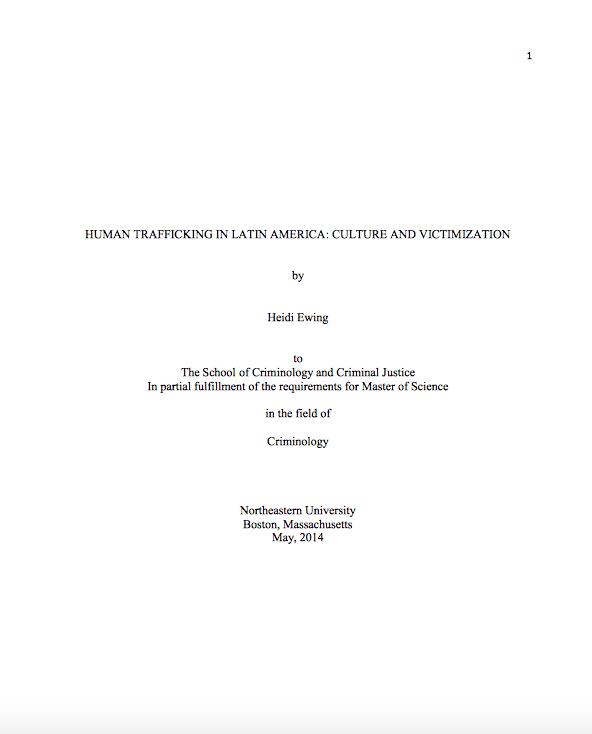
Human Trafficking in Latin America: Culture and Victimization
Human trafficking has recently garnered much publicity, often being considered the second or third most profitable black market trade after drugs and weapons. In this paper the role of Mexican and Brazilian cultures, primarily as they pertain to gender, race/ethnicity, and poverty, in Latin American trafficking victimization is examined. It determines that there is a great lack of research into Latin America, both in human trafficking and in anthropological studies, but suggests that there is a connection between how culture treats gender, race/ethnicity and poverty, the interplay of those factors, and the likelihood that a person will be trafficked for sex or labor.
